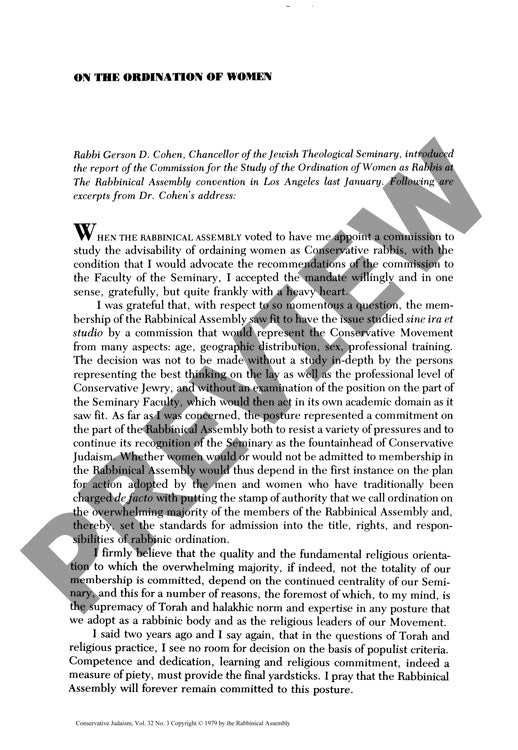On the Ordination of Women
Couldn't load pickup availability
In 1977, as women's roles in religious leadership sparked intense debate across Judaism, the Conservative Movement confronted a watershed decision: whether qualified women could serve as rabbis. The Commission for the Study of the Ordination of Women as Rabbis, chaired by Chancellor Gerson D. Cohen, undertook a comprehensive investigation combining interdisciplinary analysis, North American public hearings, expert testimony, and community surveys. Through examination of halakhic, theological, moral, sociological, and institutional dimensions, the commission scrutinized traditional Jewish legal distinctions between men and women, focusing on issues of communal appointment, Torah study obligations, time-dependent commandments, witness eligibility, and judicial service. While acknowledging certain halakhic sex-role distinctions, the research revealed that the modern rabbinate as an evolved social institution does not fall under direct halakhic prohibition regarding women's ordination. The commission found particular support in previous Conservative Movement decisions through the Committee on Jewish Law and Standards, which had already legitimated related practices for women. Drawing on historical precedents of halakhic development and the movement's commitment to Torah scholarship regardless of gender, the majority recommended ordaining qualified women as rabbis. This landmark study concluded that women's ordination would strengthen the Conservative Movement while maintaining both halakhic authenticity and traditional Jewish values.

More Information
-
Physical Description
-
Publication Information
Published 1979
ISBN
-
Publication Credits
Gerson Cohen

